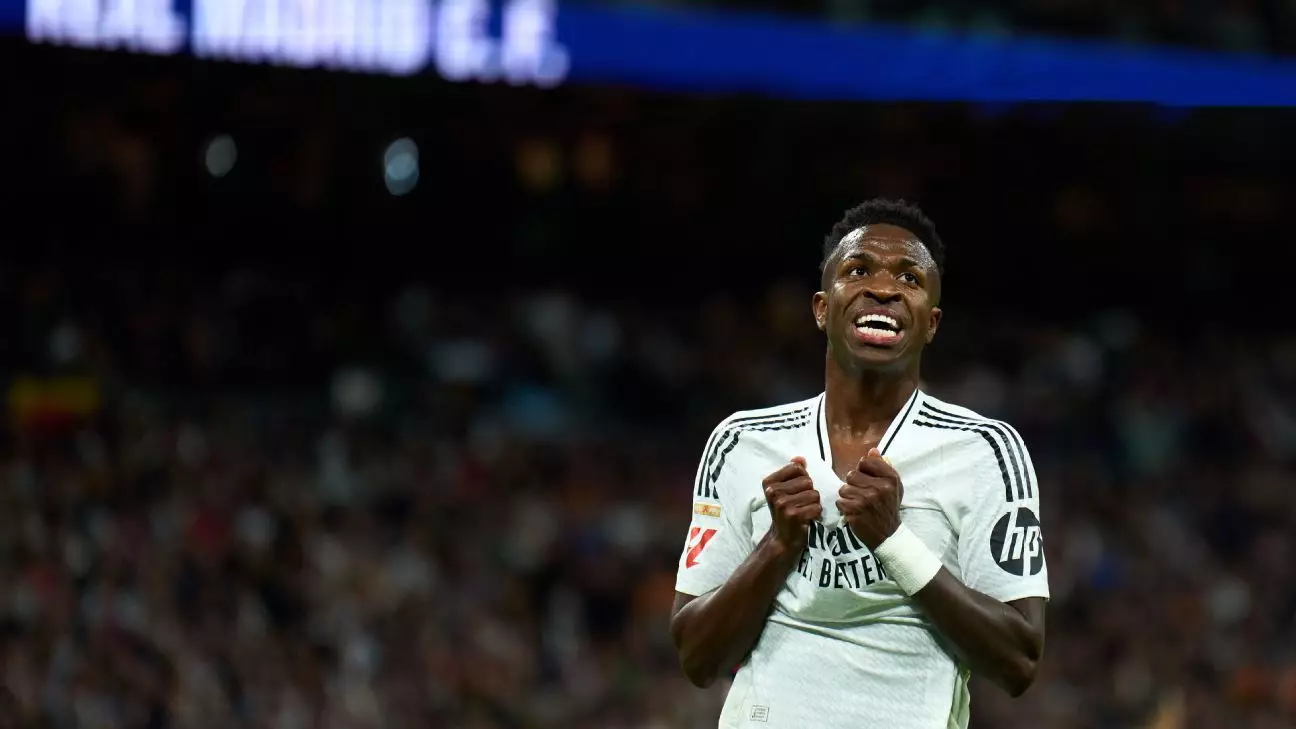Throughout history, resilience in the face of adversity has been a hallmark of greatness among many revered figures. From artists to athletes, numerous prominent individuals have transformed their experiences of failure, rejection, and criticism into opportunities for remarkable achievements. This intriguing narrative invites us to explore whether Vinícius Júnior, the Brazilian sensation and Real Madrid star, is poised to embody this legacy after his recent frustration at the Ballon d’Or. Can he rise from the instigating shadows of perceived injustice and emerge more potent than ever?
Despite his young age, Vinícius has already amassed a plethora of accolades, and his showing at the prestigious Ballon d’Or ceremony sparked heightened tension. The anticipation and expectation surrounding the physically gifted winger were palpable, as he believed he was in prime contention for the award. However, when the result did not fall in his favor, his reaction was immediate. He took to social media, vowing to channel his disappointment into thorough excellence, reaching his supporters and critics alike.
The juxtaposition between Vinícius and many others who allow slights to diminish their focus is striking. While numerous talented athletes falter under the burden of scorn or perceived unfairness, Vinícius’s response suggests a fierce determination to combat adversity head-on. The question remains: what has shaped his character in such a way that he might leverage negativity as a fuel for future success?
To understand the trajectory that Vinícius might take, it’s helpful to consider the precedents set by various iconic figures in sports and the arts. For instance, the Beatles famously faced rejection from DECCA Studios, deemed by many to be nothing more than a mediocre act. Despite this, they transformed that rejection into a launchpad for their legendary careers that would dominate the musical landscape. Similarly, famed actors like Fred Astaire were dismissed with scathing critiques—labels of inelegance that belied their true talent—but these setbacks did not inhibit their ultimate rise to stardom.
Vinícius can potentially join these illustrious ranks, but his journey poses an essential question: how will he choose to react? The stakes were highlighted not only during the Ballon d’Or but also throughout his career, most notably when he initially struggled to secure a place in Zinedine Zidane’s lineup. This adversity shaped his resolve, culminating in extraordinary performances that would eventually earn him accolades and recognition.
It is not dissimilar to the experiences of Michael Jordan, who faced rejection during his early athletic career yet became one of basketball’s greatest success stories. Each of these individuals, at a critical juncture, turned disappointment into inspiration—a skill that Vinícius must hone moving forward.
As AC Milan prepares to face Real Madrid in the Champions League, Vinícius’s character and focus will be scrutinized intensely. While his talent is indisputable, an examination of his discipline reveals vulnerabilities, especially considering his history of disqualifications and confrontational behavior on the field. This paints a complex picture of an athlete driven by passion, yet wrestling with the pressures of expectation and raw emotion following a perceived slight.
His attitude—a blend of provocation and determination—will be essential to his success and growth. The fallout from criticism can vary: it can drive someone to greatness, as it did with legends like Beckham, or lead a player astray as with Roy Keane, whose reaction to disrespect had long-lasting implications. Vinícius stands vulnerable at this crossroad, and how he channels his sense of injustice will dictate his path.
While he has shown instincts of a showman, a crucial aspect of maturing is understanding when and how to weaponize that instinct effectively. What Vinícius needs is counsel, composed support, and the perspective offered by mature teammates like Carlo Ancelotti and Luka Modric to navigate this turbulent time with grace, tempering aggression with tactical nous.
Ultimately, Vinícius’s course will depend not just on skills but on choices tied to emotional resilience. He stands at a pivotal point, grappling with the highs and lows of competitive sports. With offers from lavish leagues tempting him away from LaLiga, how he represents himself—both on the pitch and off—will be a defining aspect of his developing narrative.
The saga of Vinícius Júnior serves as a reminder: adversity can act as a catalyst for greatness, and how one processes setbacks influences subsequent success. For the young Brazilian, the challenge lies in transforming sorrow into strength while recognizing the power of emotional control. If he can harness his passion wisely, the world may just witness the emergence of another sporting legend, capable of standing proud against life’s adversities and whispering defiantly: “Is that all you’ve got?”

